Egyptian Citrus: A Global Treasure
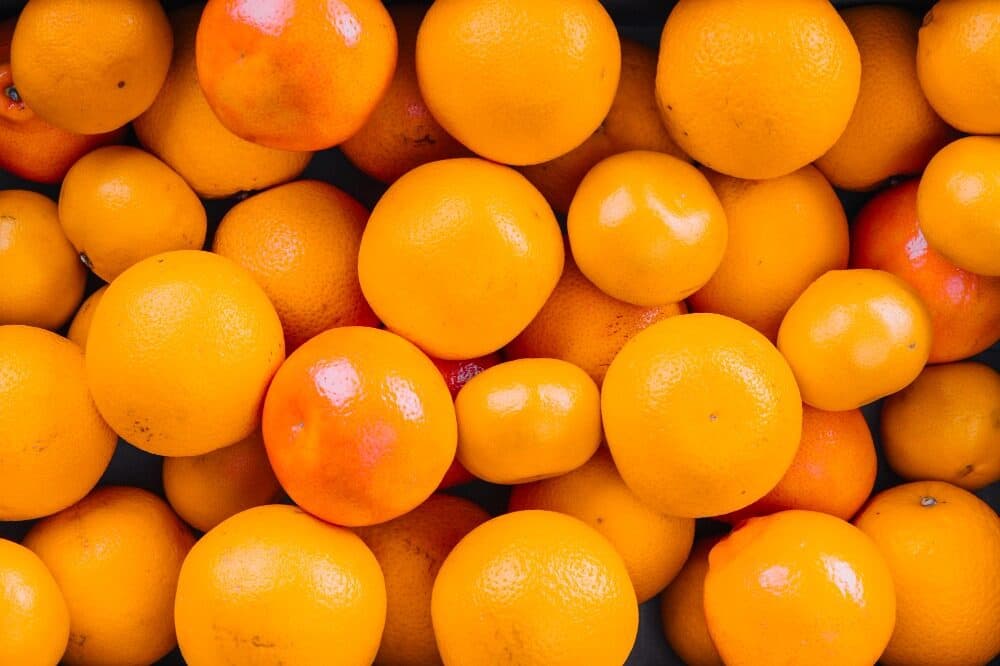
Egypt is renowned for its rich agricultural heritage, and one of the crown jewels of this sector is its citrus fruits. The favorable climate, fertile soil of the Nile Delta, and advanced farming techniques combine to produce some of the most flavorful and nutritious citrus fruits in the world. Egyptian citrus, including oranges, lemons, mandarins, and grapefruits, are highly sought after in international markets.
The History of Egyptian Citrus
The history of citrus cultivation in Egypt dates back to ancient times. The Nile Delta, with its fertile soil and ample water supply, has always been an ideal location for agriculture. Ancient Egyptians recognized the potential of this land for growing a variety of crops, including citrus fruits. Over the centuries, citrus fruits became an integral part of Egyptian agriculture, with farmers perfecting their cultivation techniques.
Egyptian citrus gained prominence during the Arab period when trade routes expanded, and citrus fruits were exported to neighboring regions. The citrus industry continued to grow, and by the modern era, Egypt had established itself as a significant player in the global citrus market.
The Variety of Egyptian Citrus
Egyptian citrus includes a wide range of fruits, each with its unique flavor and health benefits:
– Oranges: Egypt is one of the largest exporters of oranges globally, particularly the sweet and juicy (https://en.wikipedia.org/wiki/Valencia_orange). These oranges are known for their vibrant color, sweet taste, and high vitamin C content. Valencia oranges are especially popular for juicing, while Navel oranges are favored for fresh consumption due to their seedless nature.
– Lemons: Egyptian lemons are prized for their tartness and juiciness, making them perfect for culinary uses and beverages. Their bright yellow color and rich flavor make them a staple in many kitchens around the world. The Eureka and Lisbon varieties are the most commonly cultivated in Egypt, both known for their high juice content and robust flavor.
– Mandarins: Easy to peel and incredibly sweet, Egyptian mandarins are a favorite among consumers. They are often enjoyed as a healthy snack and are also used in salads and desserts. The Clementine and Satsuma varieties are particularly popular, known for their sweetness and ease of peeling.
– Grapefruits: Known for their tangy taste and health benefits, Egyptian grapefruits are rich in vitamins and antioxidants (https://www.webmd.com/vitamins/ai/ingredientmono-946/grapefruit). They are enjoyed fresh or as juice and are appreciated for their refreshing flavor. Varieties such as the Ruby Red and Marsh Seedless are especially valued for their juiciness and balanced sweetness.
The Cultivation Practices of Egyptian Citrus
Egyptian citrus farmers employ a range of advanced cultivation practices to ensure the highest quality produce. These practices include:
1. Soil Management: The fertile soil of the Nile Delta is carefully managed to maintain its health and productivity. Farmers use organic fertilizers and compost to enrich the soil, ensuring that it provides the necessary nutrients for citrus trees.
2. Irrigation Techniques: Efficient water usage is crucial in Egypt’s arid climate. Farmers use modern irrigation systems, such as drip and sprinkler irrigation, to ensure that citrus trees receive adequate water without wastage. This not only conserves water but also promotes healthy growth and high yields.
3. Pest and Disease Control: Integrated Pest Management (IPM) is widely practiced among Egyptian citrus farmers. This approach combines biological, cultural, and chemical methods to control pests and diseases, minimizing the use of harmful pesticides. Natural predators, crop rotation, and resistant varieties are commonly used to maintain healthy orchards.
4. Harvesting Methods: Citrus fruits are harvested at their peak ripeness to ensure maximum flavor and nutritional value. Farmers carefully monitor the fruits’ development and use modern tools and techniques to harvest them efficiently, reducing damage and ensuring freshness.
Why Import Egyptian Citrus?
1. Superior Quality: Egyptian citrus fruits are known for their exceptional quality. The combination of fertile Nile Delta soil, ample sunshine, and advanced agricultural practices results in fruits that are flavorful, juicy, and rich in nutrients. The high vitamin C content in oranges, the tartness of lemons, and the sweetness of mandarins are some of the qualities that make Egyptian citrus stand out.
2. Competitive Pricing: Due to efficient farming practices and lower production costs, Egyptian citrus fruits are competitively priced in the global market. This makes them an attractive option for importers looking for high-quality produce at reasonable prices. The cost-effectiveness of Egyptian citrus is a significant factor driving its popularity in international markets.
3. Sustainable Farming: Many Egyptian citrus farmers are committed to sustainable and environmentally friendly practices. This includes using natural pest control methods, efficient water usage, and minimal chemical inputs to ensure that the fruits are safe and healthy for consumption (https://www.ifad.org/nl/web/operations/w/country/egypt). Sustainable farming practices not only protect the environment but also enhance the quality and safety of the produce.
4. Reliable Supply Chain: Egypt’s strategic location and well-developed logistics infrastructure ensure that citrus fruits can be exported quickly and efficiently to markets around the world. This reliability in supply chain management makes Egypt a preferred partner for many international importers. The proximity to major markets in Europe, Asia, and the Middle East, coupled with modern port facilities, ensures timely and efficient delivery of citrus fruits.
The Economic Impact of Egyptian Citrus
The citrus industry is a vital component of Egypt’s economy, providing employment and income for thousands of farmers and workers. In addition to its economic benefits, the industry also plays a crucial role in rural development and poverty alleviation. The revenue generated from citrus exports supports infrastructure development, education, and healthcare in rural areas.
In 2022, Egypt exported approximately 1.8 million tons of citrus fruits, making it one of the top citrus exporters globally (https://apps.fas.usda.gov/newgainapi/api/Report/DownloadReportByFileName?fileName=Citrus%20Annual_Cairo_Egypt_EG2022-0033). Major markets for Egyptian citrus include Europe, the Middle East, Asia, and North America. The demand for Egyptian citrus continues to grow due to its quality and the country’s ability to meet large-scale orders reliably.
Gezira United: Your Partner for Quality Citrus
When it comes to sourcing high-quality Egyptian citrus, Gezira United stands out as a leader in the industry. With a focus on sustainability and stringent quality control, Gezira United ensures that each shipment of citrus fruits meets the highest standards of freshness and safety. The company is dedicated to providing superior products and exceptional service to its international clients (Gezira United)
Gezira United employs a comprehensive quality control system that starts from the farm and continues through processing, packaging, and shipping. The company works closely with farmers to implement best practices in cultivation and harvesting, ensuring that the fruits are picked at the optimal time and handled with care to preserve their quality.
The Role of Technology in Enhancing Quality
Advanced technology plays a significant role in the Egyptian citrus industry. From precision farming techniques to modern packing facilities, technology enhances productivity, quality, and sustainability. Some of the key technological advancements include:
1. Precision Farming: The use of GPS and satellite imagery allows farmers to monitor and manage their orchards with greater accuracy. Precision farming techniques help optimize water usage, nutrient application, and pest control, leading to higher yields and better quality fruits.
2. Cold Chain Management: Maintaining the cold chain from the moment the fruits are harvested until they reach the consumer is crucial for preserving freshness and quality. Advanced refrigeration systems and insulated containers ensure that citrus fruits remain at the optimal temperature throughout the supply chain.
3. Automated Sorting and Packing: Modern packing facilities use automated sorting and packing lines to ensure that only the best fruits are selected for export. These systems can sort fruits based on size, color, and quality, ensuring uniformity and consistency in each shipment.
Health Benefits of Egyptian Citrus
Citrus fruits are renowned for their health benefits, and Egyptian citrus is no exception. These fruits are rich in vitamins, minerals, and antioxidants, making them an essential part of a healthy diet. Some of the key health benefits include:
– High Vitamin C Content: Citrus fruits are an excellent source of vitamin C, which is essential for a healthy immune system. Vitamin C also plays a vital role in collagen synthesis, wound healing, and the absorption of iron from plant-based foods.
– Antioxidant Properties: The antioxidants found in citrus fruits, such as flavonoids and carotenoids, help protect the body from oxidative stress and reduce the risk of chronic diseases. Antioxidants also have anti-inflammatory properties, which can benefit overall health.
– Digestive Health: Citrus fruits are high in dietary fiber, which is essential for healthy digestion. Fiber helps regulate bowel movements, prevent constipation, and support a healthy gut microbiome.
– Heart Health: The potassium content in citrus fruits helps regulate blood pressure, reducing the risk of hypertension and cardiovascular diseases. Additionally, the antioxidants in citrus fruits help lower cholesterol levels and improve heart health.
The Global Demand for Egyptian Citrus
The global demand for Egyptian citrus continues to rise, driven by the fruits’ exceptional quality, competitive pricing, and reliable supply. Major importers of Egyptian citrus include countries in Europe, such as the Netherlands, the United Kingdom, and Germany, as well as Russia, China, and the Gulf countries.
Europe is a significant market for Egyptian citrus, with the European Union importing large quantities of oranges, lemons, and mandarins. The stringent quality standards and preferences of European consumers drive Egyptian exporters to maintain high standards and continuously improve their products.
The Middle East and North Africa (MENA) region is another important market for Egyptian citrus. The
geographical proximity and cultural ties between Egypt and other MENA countries facilitate trade and ensure a steady demand for citrus fruits.
Asia, particularly China, has seen a growing demand for Egyptian citrus in recent years. The increasing popularity of healthy eating and the rising middle class in China have contributed to the surge in citrus imports from Egypt.
Challenges and Opportunities in the Egyptian Citrus Industry
While the Egyptian citrus industry has seen significant growth, it also faces several challenges. These include:
1. Climate Change: Changing weather patterns and extreme weather events can affect citrus production. Farmers need to adopt resilient farming practices and technologies to mitigate the impact of climate change.
2. Water Scarcity: Efficient water management is crucial in Egypt’s arid climate. Farmers must continue to implement advanced irrigation techniques and water-saving practices to ensure sustainable citrus production.
3. Pest and Disease Management: The emergence of new pests and diseases poses a threat to citrus orchards. Ongoing research and the development of resistant varieties are essential to address these challenges.
Despite these challenges, the Egyptian citrus industry has numerous opportunities for growth. The increasing global demand for healthy and nutritious foods, coupled with Egypt’s strategic location and agricultural expertise, positions the country well for continued success in the citrus market.
Gezira United: Committed to Excellence
Gezira United is committed to maintaining the highest standards of quality and sustainability in the citrus industry. The company’s dedication to excellence is reflected in its rigorous quality control processes, innovative farming practices, and focus on customer satisfaction.
Gezira United works closely with farmers to promote sustainable agriculture and improve production practices. The company provides training and support to farmers, helping them adopt modern techniques and technologies that enhance productivity and sustainability.
In addition to its commitment to quality, Gezira United is dedicated to social responsibility. The company supports community development projects, invests in education and healthcare, and promotes fair labor practices.
Explore
-

Fruit Logistica 2024 with the IPD
-

From Pharaohs to Ports: Egypt's Produce Export Journey
-
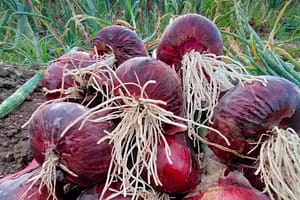
Egyptian Red Onion: Now Available with the Best Price!
-
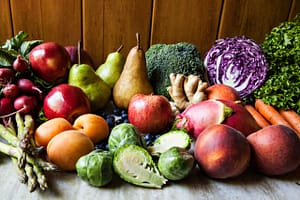
A Guide to Egyptian fruit and Vegetable Exporters and Growers
-
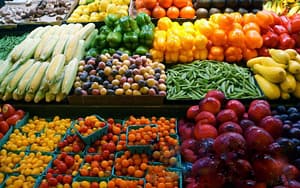
Why You Should Import Egyptian Fruits and Vegetables
-
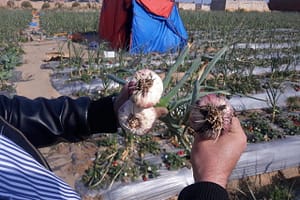
Egyptian garlic: Reasons behind importers' growing preference for it
-
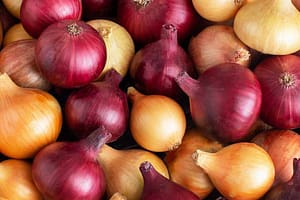
Unveiling the Superiority of Egyptian Onions in the Global Export Market
-

Drip Irrigation: Nurturing Crops, Preserving Resources
-

VIDEO: 2024 Fruit Logistica Summed Up - Valuable Insights
